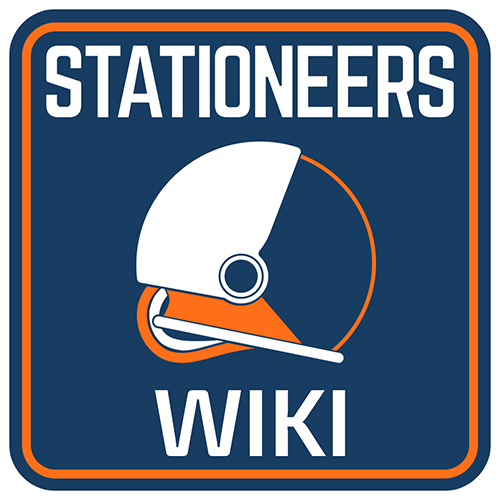Technical Standards
From Unofficial Stationeers Wiki
Revision as of 06:04, 27 November 2023 by Eleftherios (talk | contribs) (Forced table of contents for the page)
It is recommended to use color coding in order to improve the maintainability and modularity of your base.
Possible Gas Colour Coding
Following the guide[1] by user "THE kilroy" on Steam using some of the standard colours from Gas Canisters we get the following:
| Mixture | Description | Colour | Reason |
|---|---|---|---|
| Unspecified | Unspecified | Yellow | Default colour |
| |
Oxygen | White | Canister Colour |
| |
Carbon Dioxide | Black | Chemistry model colour |
| |
Hydrogen | Red | Canister Colour |
| |
Nitrogen | Green | Canister Colour |
| |
Pollutant | Grey | Canister Colour |
| |
Water | Blue | Canister Colour, water being blue |
| |
Nitrous Oxide | Brown | Only remaining spray paint colour |
| Unspecified | High Temperature | Purple | So danger is visible |
| H2/ |
Fuel | Orange | Canister Colour |
| |
Breathable Air | Khaki-Beige | Only remaining neutral spray paint colour |
| |
Hydroponic Air | Pink | Colour of some flowers, and green is taken. |
Filter Gas Colour Coding
The following colour coding uses the colours from the filters for specific gases (if available), some colours from the default canister colours in the game, and some colours previously used in other colour coding schema. Note that Hydroponic Air and Breathable Air does not need to be the specific gases listed in the mixture here, depending on your character and preferred plant mixture.
Electrical Systems
For the electrical systems there is little need to have standardized specific colour coding. However, since one generally go from power generators to batteries to power consumers we can recommend a starting point. Remember that you can colour a full stack at once, and that when combining cables the receiving stack retains the colour. This means you can keep a single cable of each of the colours you need and just combine partial stacks to get the amount you need of each colour.
The important part of colour coding your electrical networks is when you have several networks that shouldn't be combined to avoid exceeding their power rating. E.g. having two Heavy Cable networks each using more than 50 000 Watts. As long as they are kept separated they will work fine, but once they combine their total usage will be over the limit for the heavy cable. Make one of those networks blue and the other yellow, and make sure you don't connect differently coloured networks.
| Cable Network Type | Colour | Reason |
|---|---|---|
| Power Generation to Batteries | Orange | Power often comes from the sun or combustion generation |
| Batteries to Power Consumers | Black | Some real world wiring use black for single line phase conductors |
| General "High Voltage" | Purple | To mark as "dangerous" in line with gas colour coding. |
